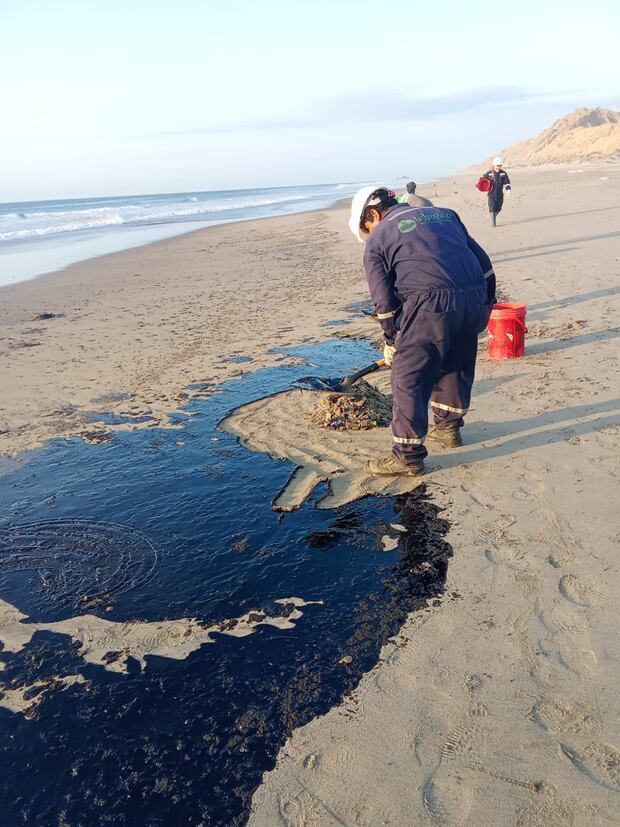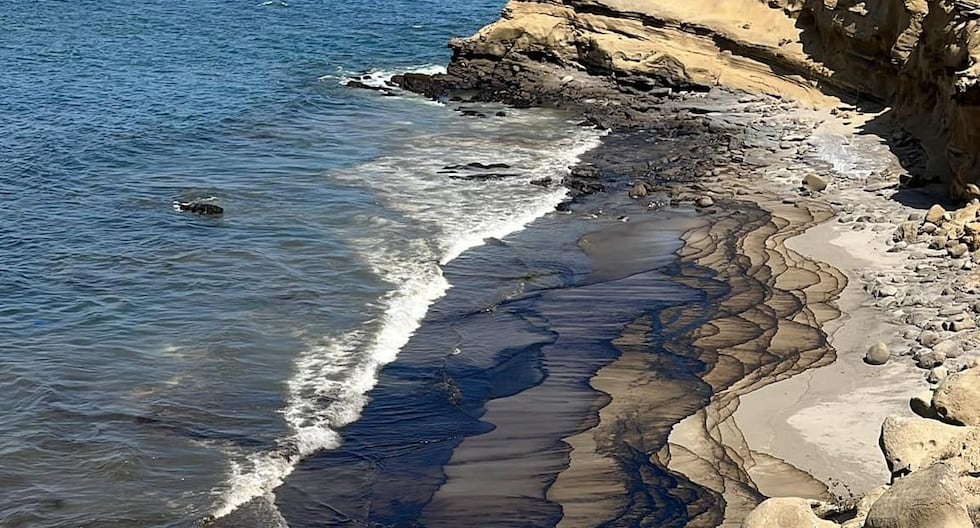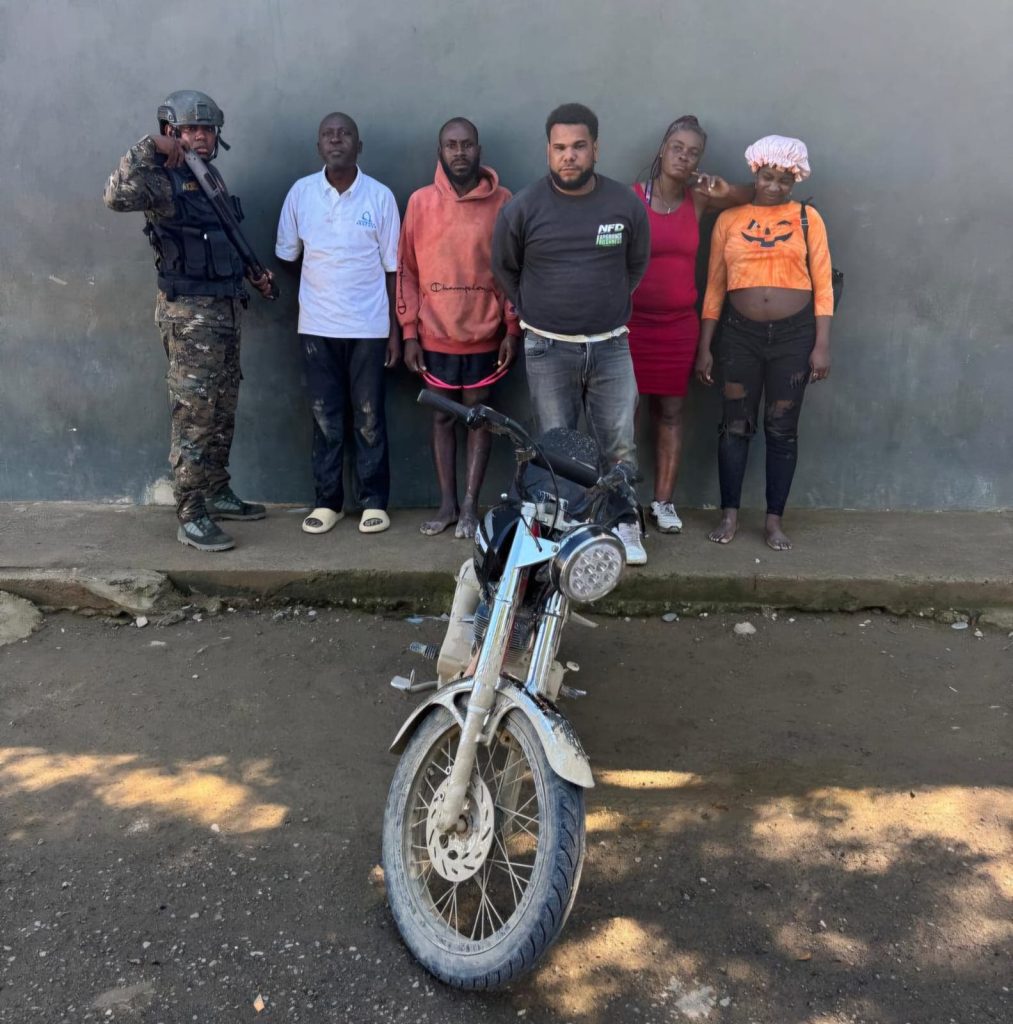The Government declared an environmental emergency, for a period of 90 business days, the geographical area of the province of Talara (Piura), after the oil spill on December 20, which seeks to guarantee the sustainable management of the affected area. through recovery and remediation work to mitigate contamination.
LOOK: Spill in Cabo Blanco: fishermen describe Petroperú statements as “lies”
Through Ministerial Resolution 00443-2024-Minam, published in the extraordinary edition of the newspaper The Peruvian, was also approved ‘Immediate and short-term action plan’ for the attention of the environmental emergency whose execution will be in charge of the public entities involved, in coordination with the Regional Government of Piura and the municipality.
The actions contained in the document have been validated by representatives of the Environmental Assessment and Supervision Agency (OEFA), the National Service of Natural Areas Protected by the State (Sernanp), the National Water Authority (ANA), the Ministry of Energy and Mines, of the Ministry of Foreign Trade and Tourism, of the Ministry of Health, of the Supervisory Body for Investment in Energy and Mining.
Likewise, from the Ministry of Production, the National Fisheries Development Fund (Fondepes), the National Authority for Health and Safety in Fisheries and Aquaculture (Sanipes), the Institute of the Sea of Peru (Imarpe), the General Directorate of Captaincies and Coast Guard (Dicapi), of the National Port Authority (APN), of the National Forestry and Wildlife Service (Serfor), of the Regional Government of Piura and Petroperú SA
Hits fishermen and businessmen
The oil spill on the beaches of Talara continues to generate serious consequences for local fishermen and businessmen. While Petroperú assures that the waters are “100% clean,” leaders in the area, such as Darío Carreño, denounce that pollution is advancing towards more beaches, affecting both the ecosystem and the economy.
“I would invite Óscar Vera to take him to Capullanas. I pick him up myself from the Talara Airport and bring him to Lobitos so he can bathe in the crystal clear waters that he says. It is a complete mockery, misinforming people because they say that Lobitos is with the crystal clear waters when that is not the case. “All the species of fauna on the marine coast are dying,” said Darío Carreño, president of the Lobitos Transporters’ Guild to RPP.
Petroperu
Meanwhile, Petroperú reported that the cleanup activities after the oil spill that occurred in the district of Lobitos, province of Talara, They are practically completed. This was announced by Jhan Paiva, representative of the state company, who assured that significant progress has been made in the recovery of the affected beaches.
Nevertheless, Jean Pierre Araujo, legal advisor for Marine Governance of the Peruvian Society of Environmental Law (SPDA), warned that it could take longer for the area to be repaired.
He pointed out in RPP that Superficial cleaning does not imply the recovery of the ecosystem, since biological processes and long-term restoration plans will be necessary.
“Sole containment or cleaning, whether we do not see hydrocarbon superficially in the sea or the shores, does not mean that the ecosystem is already restored, because there will be biological processes that will have to be monitored by the authorities that will generate then a restoration plan”, he asserted.

The oil stains reached the shores of the beaches in the north of the country. (Photo: Aspacab/Facebook)















